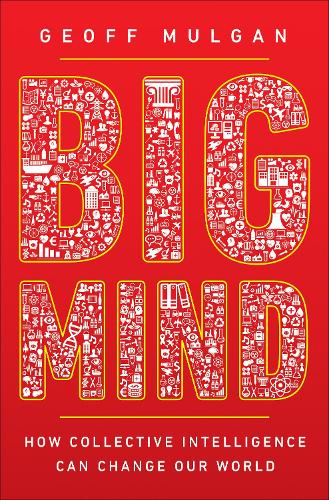
Big Mind: How Collective Intelligence Can Change Our World
(Hardback)
Available Formats
Publishing Details
Big Mind: How Collective Intelligence Can Change Our World
By (Author) Geoff Mulgan
Princeton University Press
Princeton University Press
5th February 2018
United States
Classifications
Tertiary Education
Non Fiction
Cognitivism, cognitive theory
Artificial intelligence (AI)
006.3824
Physical Properties
Hardback
288
Width 152mm, Height 235mm
567g
Description
A new field of collective intelligence has emerged in the last few years, prompted by a wave of digital technologies that make it possible for organizations and societies to think at large scale. This "bigger mind"--human and machine capabilities working together--has the potential to solve the great challenges of our time. So why do smart technolo
Reviews
"One of The Guardians Favourite Reads of 2017 as chosen by scientists"
"A fascinating and important book."---James Crabtree, Financial Times
"The trenchant questions and thoughtful discussion in Big Mind . . . will help us to reimagine our institutions and convince us of the urgency of doing so."---Beth Simone Noveck, Nature
"Brilliant. . . . Drawing on such disciplines as social psychology, computer science, and economics, as well as his experiences as a co-founder of the think tank Demos, Mulgan outlines the elements of CI, which has informed collaborations from the Manhattan project and NASA's moon landings to Google Maps and Wikipedia." * Kirkus Reviews *
"A perfect introduction to collective intelligence. . . . The book draws on subjects such as social psychology, computer sciences and economics, as well as the authors experiences as co-founder of the think tank Demos." * Arab News *
"[Big Mind] charts the emergence of the new field of collective intelligence, which is harnessing human and digital capabilities for collaborative problem-solving on an unprecedented scale. Its an argument with profound implications for the way we organise science, universities, businesses and governments."---James Wilsden, The Guardian
"[Big Mind] raises many awkward questions about why modern institutions, stacked with clever people and overflowing with useful data, are so often prone to collective intelligence failures, from some of the policy decisions that led up to this years Grenfell Tower fire in London to the run-in to the financial crisis a decade ago."---James Crabtree, Financial Times
"Mr Mulgans basic thought is that organisations, like individual minds, can contain highly intelligent elements and yet still be pretty stupid as a whole . . . . The trick is to balance the different sources of cleverness in such a way as to get the best out of all of them."---Oliver Moody, The Times
"An engaging and important read." * Paradigm Explorer *
Author Bio
Geoff Mulgan is chief executive of Nesta, the UK's National Endowment for Science, Technology and the Arts, and a senior visiting scholar at Harvard University's Ash Center. He was the founder of the think tank Demos and director of the Prime Minister's Strategy Unit and head of policy under Tony Blair. His books include The Locust and the Bee (Princeton) and Good and Bad Power (Penguin).
